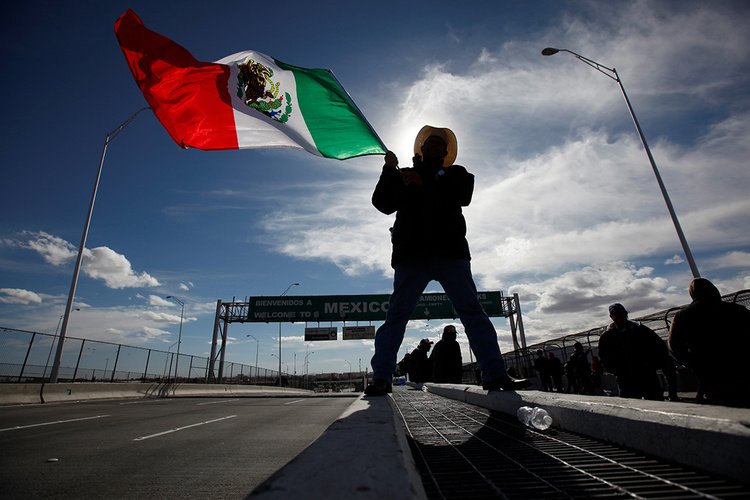
Violence continues to rage more than a decade after the Mexican government launched a war against drug cartels.

Mexican authorities have been waging a deadly battle against drug cartels for nearly two decades, but with limited success. Thousands of Mexicans—including politicians, students, and journalists—die in the conflict every year. The country has seen more than 431,000 homicides since 2006, when the government declared war on the cartels.
More From Our ExpertsThe United States has partnered closely with its southern neighbor in this fight, providing Mexico with billions of dollars to modernize its security forces, reform its judicial system, and fund development projects aimed at curbing irregular migration. Washington has also sought to stem the flow of illegal drugs into the United States by bolstering security and monitoring operations along its border with Mexico. Under U.S. President Joe Biden, the two countries adopted a new framework to address insecurity in Mexico and the U.S. opioid crisis, though bilateral relations have become strained amid concerns over Mexican President Andrés Manuel López Obrador’s alleged financial ties to cartels.
Mexican drug trafficking organizations (DTOs)—sometimes referred to as transnational criminal organizations—dominate the import and distribution of cocaine, fentanyl, heroin, marijuana, and methamphetamine in the United States. Mexican suppliers are responsible for most heroin and methamphetamine production, while cocaine is largely produced in Colombia and then transported to the United States by Mexican criminal organizations. Mexico, along with China, is also a leading source of fentanyl, a synthetic opioid up to fifty times more potent than heroin and easier to produce.

President Donald Trump shifted U.S. priorities for Mérida to issues including border security and combating drug production and money laundering. In a highly controversial move in February 2019, Trump declared a national emergency at the U.S.-Mexico border and ordered the deployment of thousands of active-duty military troops there, citing an influx of illicit drugs, criminals, and undocumented immigrants. Mexico later deployed twenty-five thousand National Guard members to secure its borders, which some experts say increased violence and diminished the country’s cartel-fighting capacity.
The U.S.-Mexico relationship took a major hit in October 2020, when U.S. authorities arrested General Salvador Cienfuegos Zepeda, a former Mexican defense minister, in Los Angeles for drug trafficking and money laundering. Though the United States later dropped the charges and allowed Cienfuegos to return to Mexico, the Mexican government responded by restricting U.S. law enforcement agents’ power to operate in the country.
President Biden inherited a tense security relationship with Mexico, with bilateral cooperation focused mostly on migration, the COVID-19 pandemic, and trade. Presidents Biden and López Obrador initially announced the creation of a new framework to address both insecurity in Mexico and the opioid crisis in the United States, but in 2022, AMLO disbanded a DEA-trained anti-narcotics force that had worked closely with U.S. law enforcement for decades. Despite some progress on implementing the framework, including an increase in arrests for arms and drug traffickers, bilateral relations have become increasingly strained by perceptions among some in Washington that AMLO has not done enough to tackle the problem.
Advisors for Mexican President-Elect Claudia Sheinbaum, who will take office in October, said she will aim to reduce the homicide rate by increasing the number of federal investigators, expanding the National Guard, and combating impunity via judicial reforms.